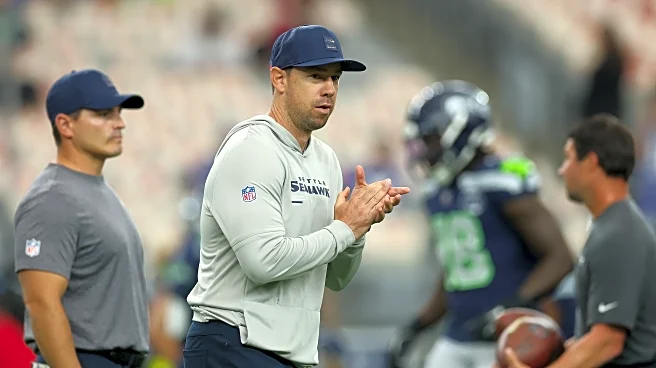What is the story about?
What's Happening?
Derrick Rose, a former NBA MVP, has expressed regret over the absence of load management during his prime years in the league. Rose, who suffered a career-altering ACL injury, noted that the concept of load management was not prevalent during his time with the Chicago Bulls. He recalled that during his recovery, the term 'load management' was not used, and players were often criticized for being perceived as lazy if they missed games. Rose highlighted the shift in NBA teams' approach, where players are now expected to miss games to preserve their health for the playoffs. His former teammate, Carlos Boozer, also lamented the Bulls' inability to keep Rose healthy, suggesting that the team could have won a championship if load management had been implemented.
Why It's Important?
The discussion around load management is significant as it reflects evolving strategies in professional sports to enhance player longevity and performance. Rose's comments underscore the potential benefits of load management, which aims to prevent injuries and extend careers. This approach has become more accepted in the NBA, influencing how teams manage player workloads. The broader impact includes potential changes in team dynamics, player contracts, and fan expectations, as teams prioritize long-term success over immediate performance. Rose's reflections also highlight the challenges faced by athletes in balancing competitive demands with health considerations.
What's Next?
The concept of load management is likely to continue shaping NBA strategies, with teams increasingly adopting practices to protect their players' health. This may lead to further adjustments in scheduling, training, and game participation. As the league evolves, stakeholders, including players, coaches, and fans, may engage in ongoing debates about the balance between player health and competitive integrity. The NBA may also explore formalizing load management policies to ensure consistency across teams.
Beyond the Headlines
Rose's reflections bring attention to the ethical considerations of player health management in professional sports. The shift towards load management raises questions about the responsibility of teams to safeguard their players' well-being. It also prompts discussions on the cultural shift in sports, where mental and physical health are increasingly prioritized. This evolution may influence other sports leagues to adopt similar practices, potentially leading to a broader transformation in athlete care.


















